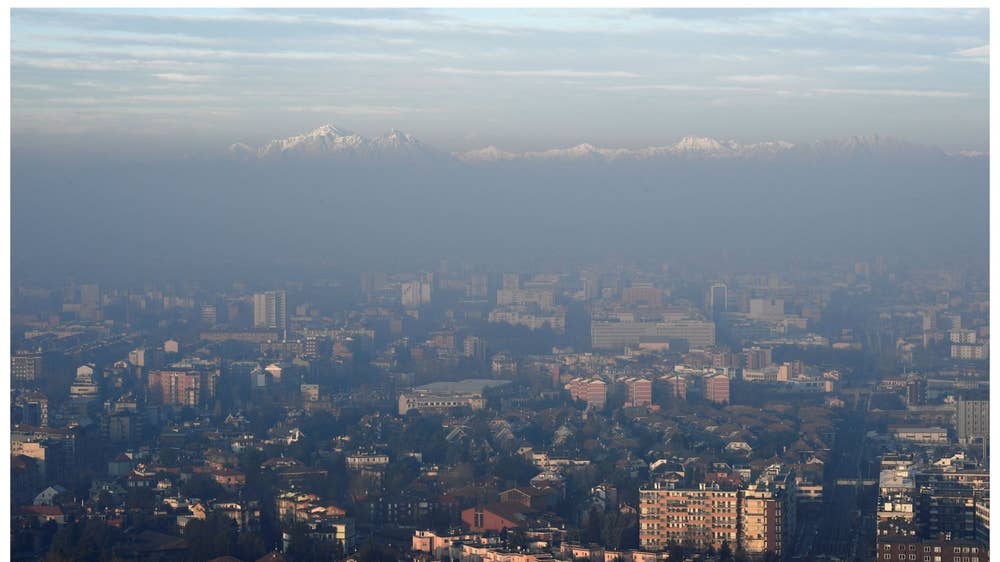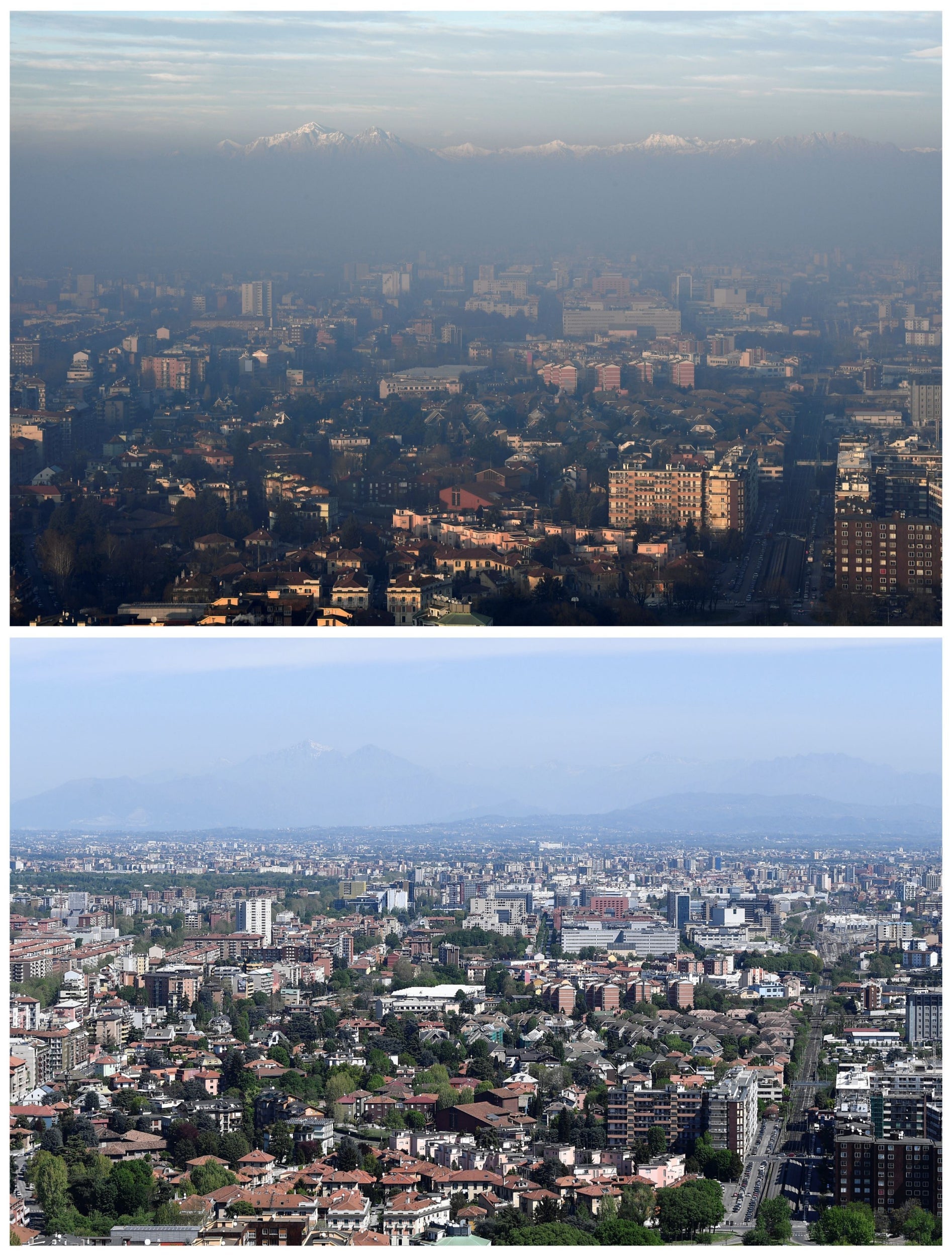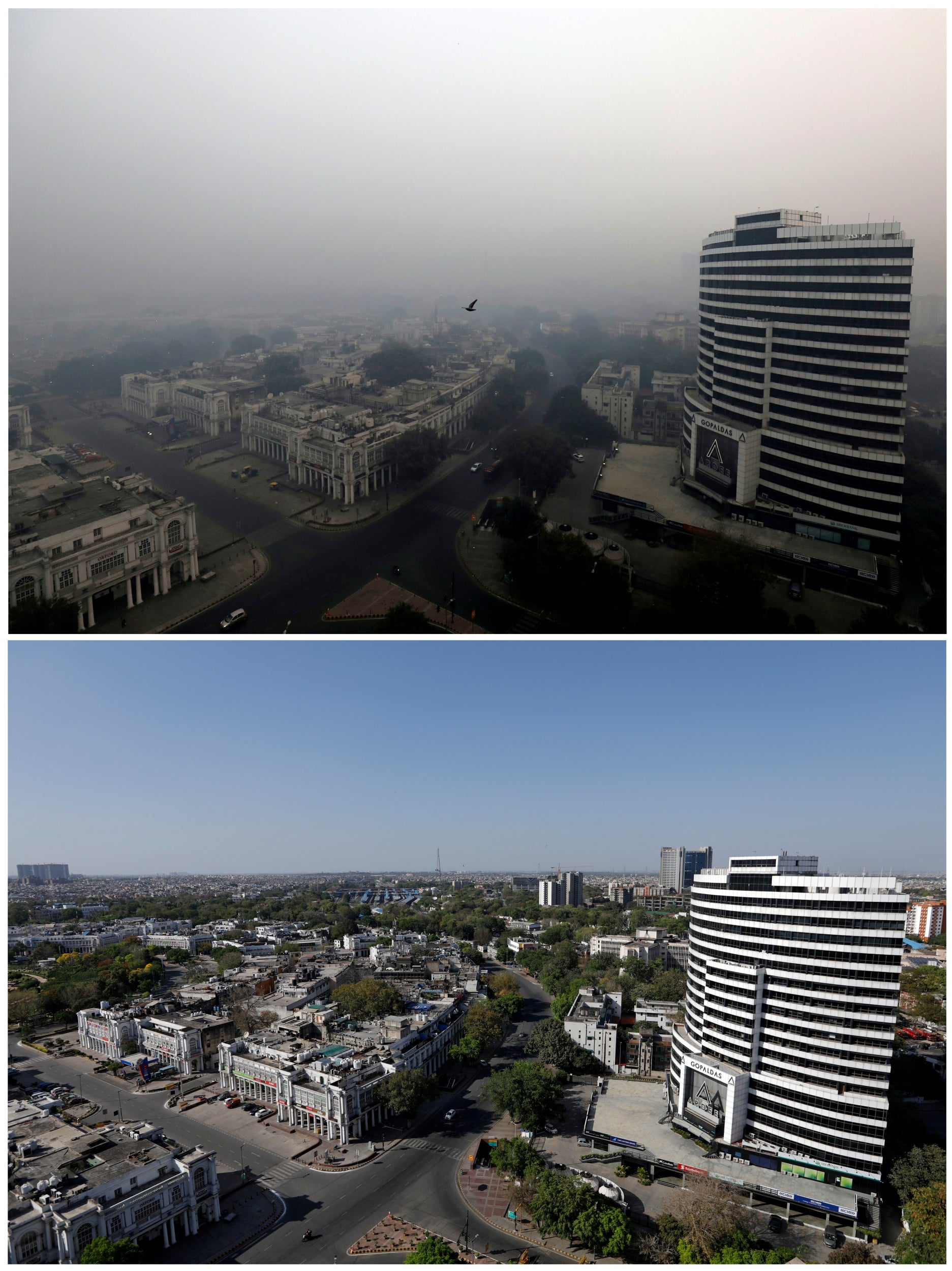Grant Shapps has revealed that large swathes of the country’s public transport network will be reduced to just 10 per cent capacity due to coronavirus social distancing measures – even when full services resume.
The transport secretary said getting Britain moving again while avoiding overcrowding represented an “enormous logistical challenge”, and even with every train, bus and tram fully operational it “will not be enough”.
He also warned that moving beyond coronavirus will be a “gradual” process, rather than a “single leap to freedom”, as Boris Johnson prepares to address the nation on Sunday evening, setting out the country’s next phase in the pandemic that has claimed more than 31,000 lives in the UK.
Download the new Independent Premium app
Sharing the full story, not just the headlines
Mr Shapps said the prime minister will proceed with “extreme caution” in easing the lockdown but hinted some restrictions could be tightened, such as the mandatory self-isolation for 14 days of people arriving in Britain.
On the scale of the challenge facing the country’s transport system, he said: “When we do emerge, the world will seem quite different, or at least for some time. The need to maintain social distancing means that our public transport system cannot go back to where it left off.


1/6
Milan, Italy
REUTERS

2/6
North Jakarta, Indonesia
REUTERS

3/6
Jakarta, Indonesia
REUTERS

4/6
Venice, Italy
REUTERS

5/6
New Delhi, India
REUTERS

6/6
Islamabad, Pakistan
REUTERS

1/6
Milan, Italy
REUTERS

2/6
North Jakarta, Indonesia
REUTERS

3/6
Jakarta, Indonesia
REUTERS

4/6
Venice, Italy
REUTERS

5/6
New Delhi, India
REUTERS

6/6
Islamabad, Pakistan
REUTERS
“Here is a very stark fact: even with public transport reverting to a full service, once you take into account the two-metre social distancing rule, there will only be effective capacity for one in 10 passengers in many parts of the network. Just a tenth of the old capacity.”
Speaking at the No 10 daily press conference, he also said £2bn of a £5bn fund announced earlier this year will be used to “put cycling and walking at the heart of our transport policy”, with a national cycling plan to be published in early June.
Of this money, £250m will be used for “swift, emergency” measures to make cycling and walking safer, with pop-up bike lanes, wider pavements and cycle and bus-only streets created in England.
Mr Shapps, however, said the changes represented a “health opportunity”, adding that millions of people had taken up cycling and walking during the lockdown, with some areas experiencing a 70 per cent rise in the number of people on bikes for exercise or travel.
“For employees who want to start to cycle to work but don’t have a bike right now, the popular cycle-to-work scheme already allows workers to save between 25 and 39 per cent on the cost of a new bike, or indeed electric bike,” he added.
The latest news on Brexit, politics and beyond direct to your inbox
The Department for Transport has said vouchers will be issued for cycle repairs in an effort to encourage people to “get their old bikes out of the shed”. E-scooter trials will also be fast-tracked by ministers – from next year to next month.
Mr Shapps said: “This £2bn announcement represents the most significant package of cycling, walking and green travel by any British government.”
The announcement comes as campaigners called for a fundamental redesign of the transport system to help prevent a bounce-back in air pollution once the lockdown is eventually lifted by the government.
In a letter to Mr Shapps and the chancellor, Rishi Sunak, nine organisations, including Greenpeace UK and Transport Action Network, said it would be “completely absurd if, after the unprecedented efforts and sacrifices made to save thousands of lives from Covid-19, we allowed thousands more to be cut short by the devastating impacts of toxic pollution”.
A YouGov poll commissioned by Greenpeace also found that 71 per cent of the public were concerned about the possibility of air pollution returning to pre-lockdown levels once the stringent restrictions are lifted.
The survey also suggested 58 per cent backed the introduction of cycle lanes on urban main roads, along with increased government funding for walking and cycling infrastructure.



